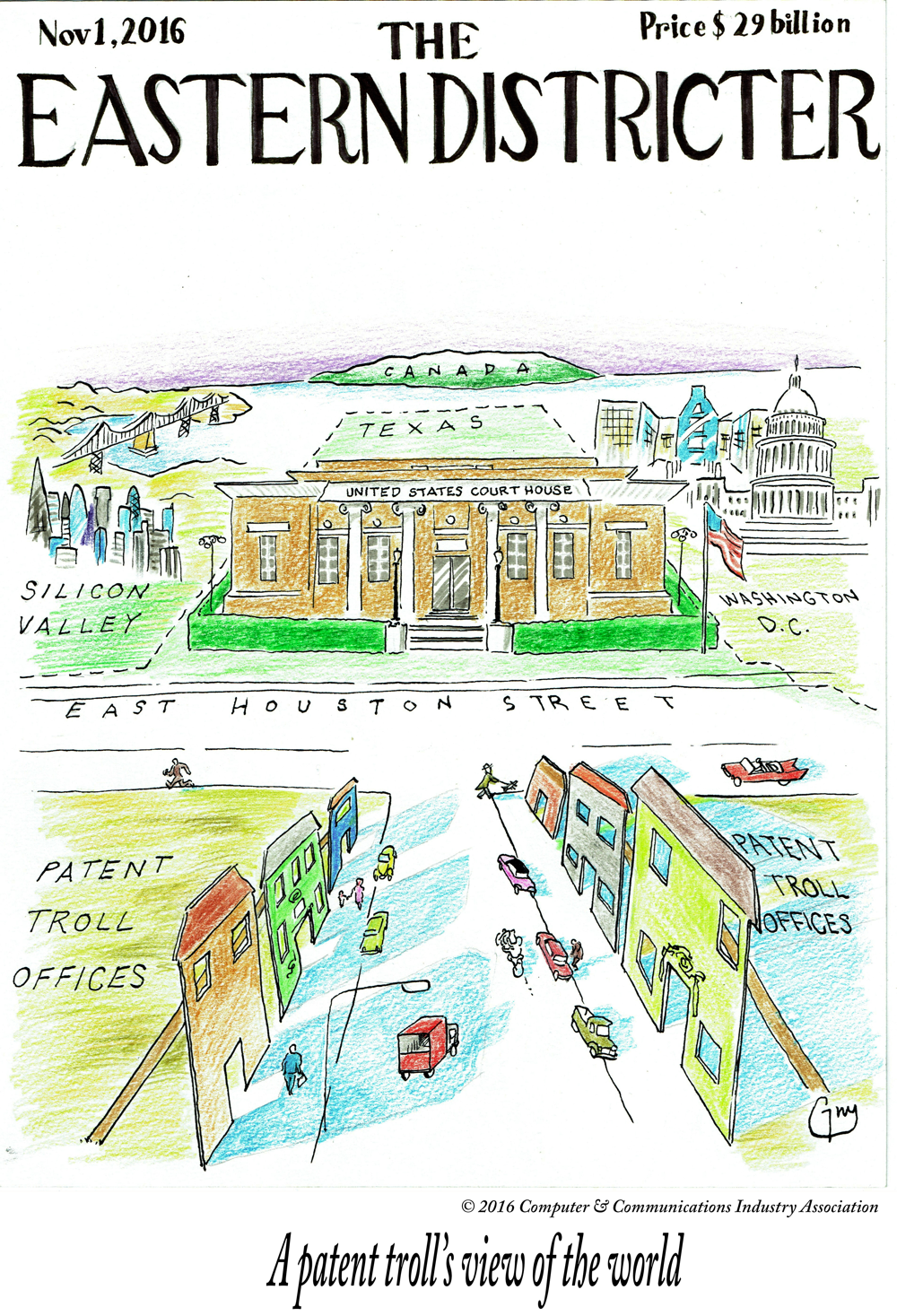 Brian Love and James Yoon have a new paper out on the Eastern District of Texas and why patent assertion entities love it so much. The authors note that 90% of the patent cases in the Eastern District are filed by patent assertion entities. They look at several possible explanations, such as the speed of the court and the court’s reputation for plaintiff-friendly juries.
Brian Love and James Yoon have a new paper out on the Eastern District of Texas and why patent assertion entities love it so much. The authors note that 90% of the patent cases in the Eastern District are filed by patent assertion entities. They look at several possible explanations, such as the speed of the court and the court’s reputation for plaintiff-friendly juries.
What they found should not be surprising to readers of this blog. Here’s an excerpt from their conclusion:
[W]e found that the patentees suing in East Texas benefit from the district’s combination of early, broad discovery deadlines with late action on motions to transfer, motions for summary judgment, and claim constructionSee Markman hearing. Though our analysis is purely descriptive, we believe that the evidence points to this combination as the primary driving force behind the Eastern District’s popularity. A virtual guarantee that accused infringers will be forced to incur large discovery costs well before they are given a shot to move or win cases opens the door for patentees to profitably pursue high volume, low value litigation, and this is precisely the phenomenon that appears to drive the popularity of East Texas.
Love and Yoon also found that few cases have any connection to the Eastern District of Texas. Only about 18% of the cases in the Eastern District of Texas have any local link to the original inventor, original patent owner, or the first named defendant. By comparison, nearly 88% of the cases filed in the Northern District of California (which includes Silicon Valley) have such a local link to the district.
The authors make a strong argument that the best way to address this favored forum for patent trolls is to reform the venue provisions for patent cases, something that CCIA has advocated for a long time. This paper is well worth sharing with anyone who doubts the need for venue reform.
